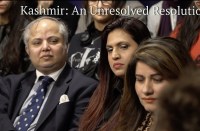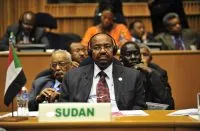Brazilians will go to the polls on the 28th of October to vote in the second round of a Presidential election that will see a somewhat lacklustre left-wing candidate Fernando Haddad face the far-right Jair Bolsonaro in a vote that Bolsonaro is widely expected to win. The elephant in the room throughout the election has been Luiz Inácio Lula da Silva, a former President who was restricted from running in this year’s election due to his imprisonment on corruption charges that are widely regarded as purely politicised. While recent opinion polls have shown that Lula remains the most popular candidate in the country, his conspicuous absence from the election has paved the way for Jair Bolsonaro whose claims to fame are seeking a return to a military junta and insulting minority groups with vitriolic rhetoric.
As Brazil faces a prolonged economic crisis, it is unclear what the future holds for Latin America’s largest nation and a nation with one of the largest wealth gaps in the world. While there are multiple social factors that have contributed to Brazil’s problems, the country’s presidential system is one that necessarily limits choices. With a popular candidate in prison and a charismatic reactionary stealing the limelight without offering any fresh modern solutions to the economic woes of the nation, Brazil may likely take a big step back later this month.
The fact of the matter is that presidential systems only work in nations that are wealthy enough or militarily powerful enough to minimise the effects of sudden change that an election hinging on the whims of a single individual might bring. In such societies, the leading candidates tend to be competing for the centre ground rather than vying for polar extremes. This has been the case in most recent US, Russian and Turkish elections, three stable countries with either presidential or hybrid presidential systems.
But for countries that seek to rapidly accelerate their development while creating a political system that is transparent and pluralistic but one that avoids extremes, a parliamentary system is a far more effective way to hold elections and form governments.
The radical shift to the far-right that Brazil is expected to undergo will have seismic effects on both the economy and society. By contrast, when Malaysia and Pakistan both held parliamentary elections earlier this year that saw a legacy party defeated by new political forces (albeit in Malaysia’s case led by a long serving former Prime Minister), the shift was peaceful, orderly and has not cased any massive shocks to society. Far from it, both the government of Mahathir Mohamad in Malaysia and that of Imran Khan in Pakistan have generally been greeted with a spirit of optimism as both political heads of government have promised to crack down on corruption and govern in a more fair and just manner than their immediate predecessors.
While the three superpowers of the United States, Russia and China do not have full scale parliamentary systems, these are unique exceptions that otherwise prove the rule. Throughout the world, whether in the developing world or the developed world excluding the three superpowers, parliamentary systems tend to bring stability, peace and prosperity.
Looking at some of the closest ASEAN neighbours of The Philippines and one sees that the parliamentary system of Singapore which has long embraced an open economic approach to foreign direct investment is the wealthiest and most socially advanced of all ASEAN member states. Neighbouring Malaysia’s parliamentary system allowed Mahathir’s first government in 1983 to create the modern Malaysian economic boom by relaxing restrictions on economic openness. Both parliamentary Singapore and Malaysia are ahead of The Philippines with its presidential system as well as Indonesia’s post-Suharto hybrid-presidential system.
The reason for this is simple enough. A parliamentary system makes it easier to pass reforms so long as the ruling party or ruling coalition can maintain its democratic mandate within a chamber of parliament. Typically though, dramatic change is less possible in a parliamentary system than in a presidential system, thus preventing the kinds of political shocks that one is about to witness in Brazil. In other words, parliamentary elections tend to represent corrections to specifically unpopular moves by a single party or party grouping rather than a wholesale rejection of one individual in favour of another individual with radically different policies.
To understand the significance of moderation in the pursuit of stability, imagine if in the mid 1980s, The Philippines had further developed its hybrid parliamentary system? By 1986, it is true that many Filipinos wanted a some find of shift from the Marcos system, though not necessarily a radical shift and certainly not a violent shift. It is equally true (however ignored this fact is by yellow media in The Philippines) that the very presidential Aquino cult of personality was not what most Filipinos wanted either. Most Filipinos favoured moderate reforms as do most people in most nations apart from brutal Pol Pot style autocracies. But due to the presence of a presidential system, there is simply a choice between one individual and another and this is before one speaks about to controversies inherent in Cory Aquino’s election. Because of this, what should have been an era of moderate, intelligent and sustainable reforms, instead became an era of shocking change that in some respects The Philippines has not yet recovered from.
Had a fully fledged parliamentary system existed in 1986, The Philippines might well have elected a Duterte style Prime Minister who rejected the corrupt liberal oligarchy that the Aquino cult of personality ushered in, but one which would have also modernised more rapidly than the Marcos system seemed capable of doing by the mid 1980s. In other words, The Philippines had a chance to get a proto-Duterte or a parallel Mahathir. Instead, The Philippines got a “yellow revolution” that has stifled the economic and intellectual debate in the country.
Beyond this, the Philippine presidential system has allowed a serious of very poor or otherwise mediocre Presidents to come and go, while the highly popular Rodrigo Duterte remains limited to a single term, thus preventing him from building the sustainable but still democratic reforms of Lee Kuan Yew in parliamentary Singapore or Mahathir in parliamentary Malaysia.
While a federal system will certainly minimise the dangers of inadequate rule form ‘Imperial Manila’, federalism without a parliamentary system is merely lessening the symptoms of an illness rather than curing the illness. Yet with a federal-presidential system, there is nothing to guarantee that after Duterte’s historic reformist administration, the ping-pong table of post-1986 Philippine presidential elections won’t ping back to a Liberal Party that remains besotted with the Aquino system that would likely be rejected by a majority of Filipinos voting in a parties based (aka an ideas based) parliamentary election.
Brazil’s limiting presidential system may well take a country in a bad situation and make things much worse. With a presidential system in The Philippines, there is nothing to prevent Duterte’s reforms being destroyed in 2022 depending on which personality is most easily able to manipulate the electorate. But if a parliamentary grouping organised around preserving and building on the Duterte legacy could be formed in order to fight a future parliamentary election, The Philippines could become more like its more prosperous partners in Singapore and Malaysia and less like some of the Latin American nations that have been economically strangulated by a presidential system that is unfit for purpose in developing nations as well as those which seek sustainable economic and social stability.



